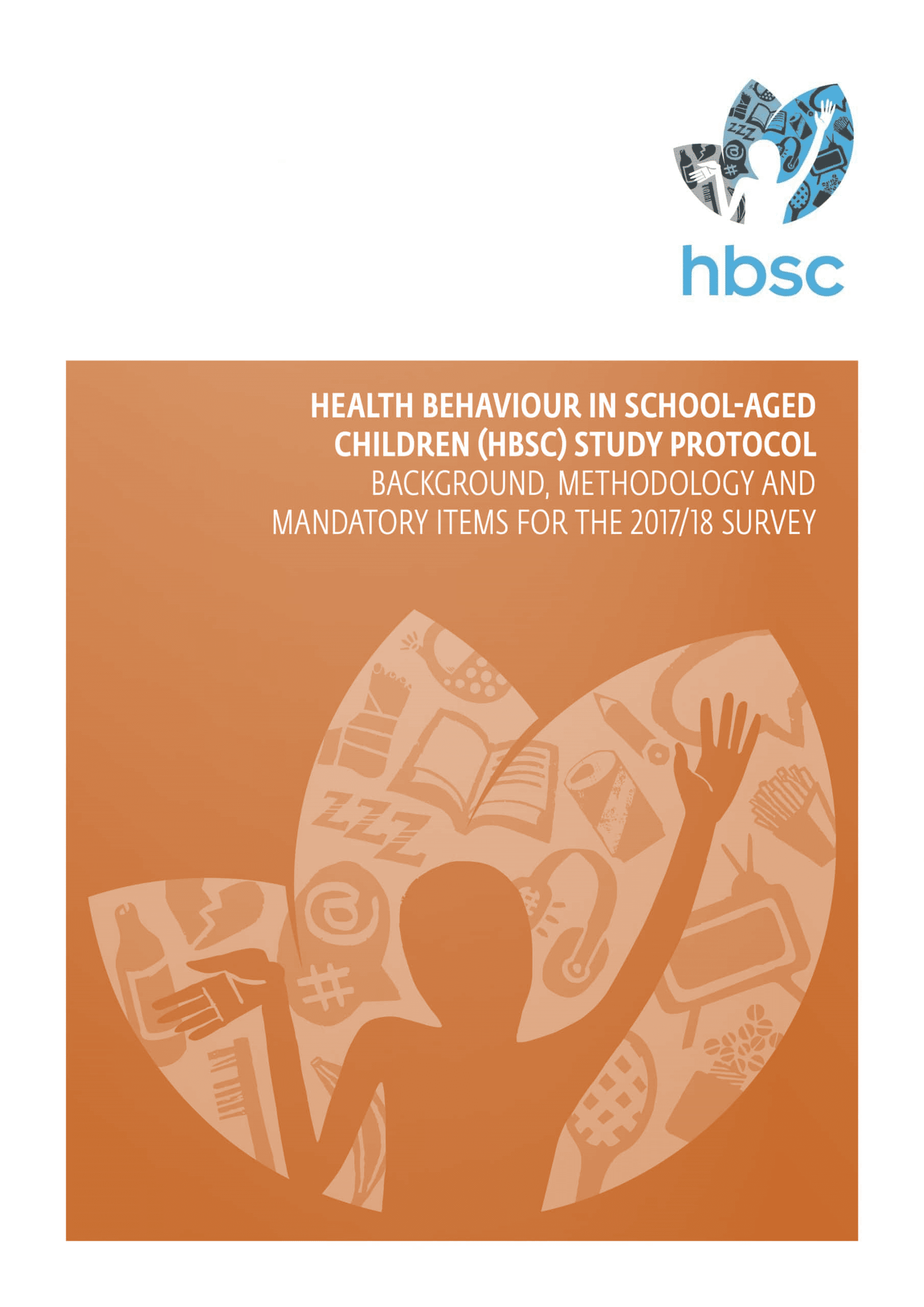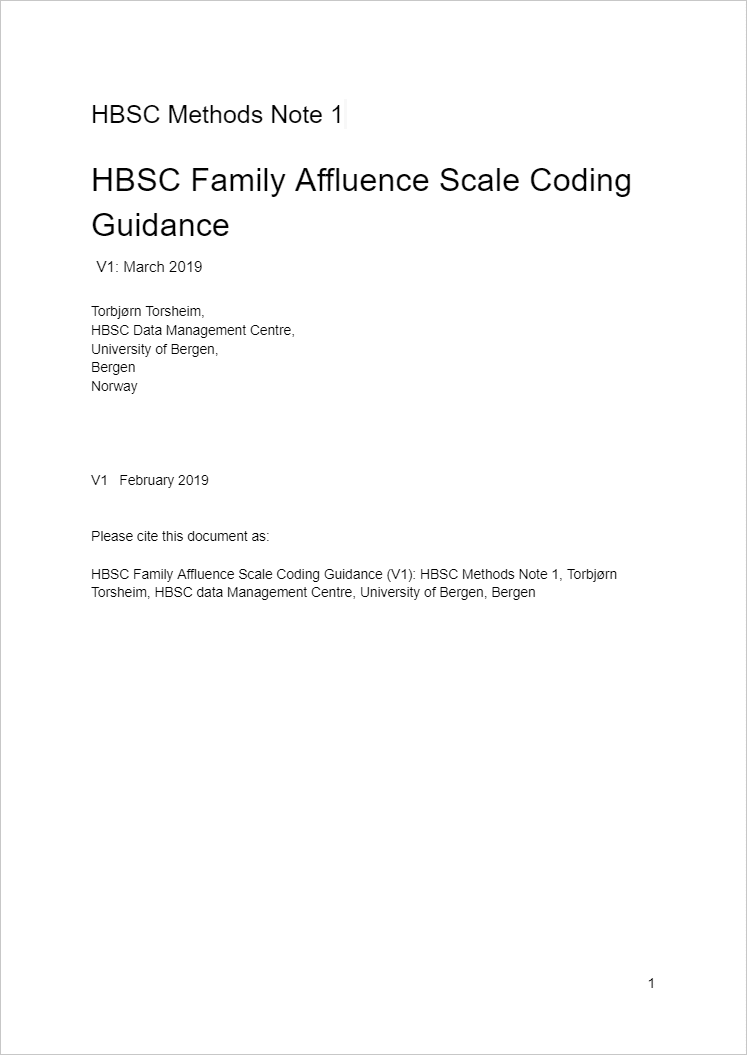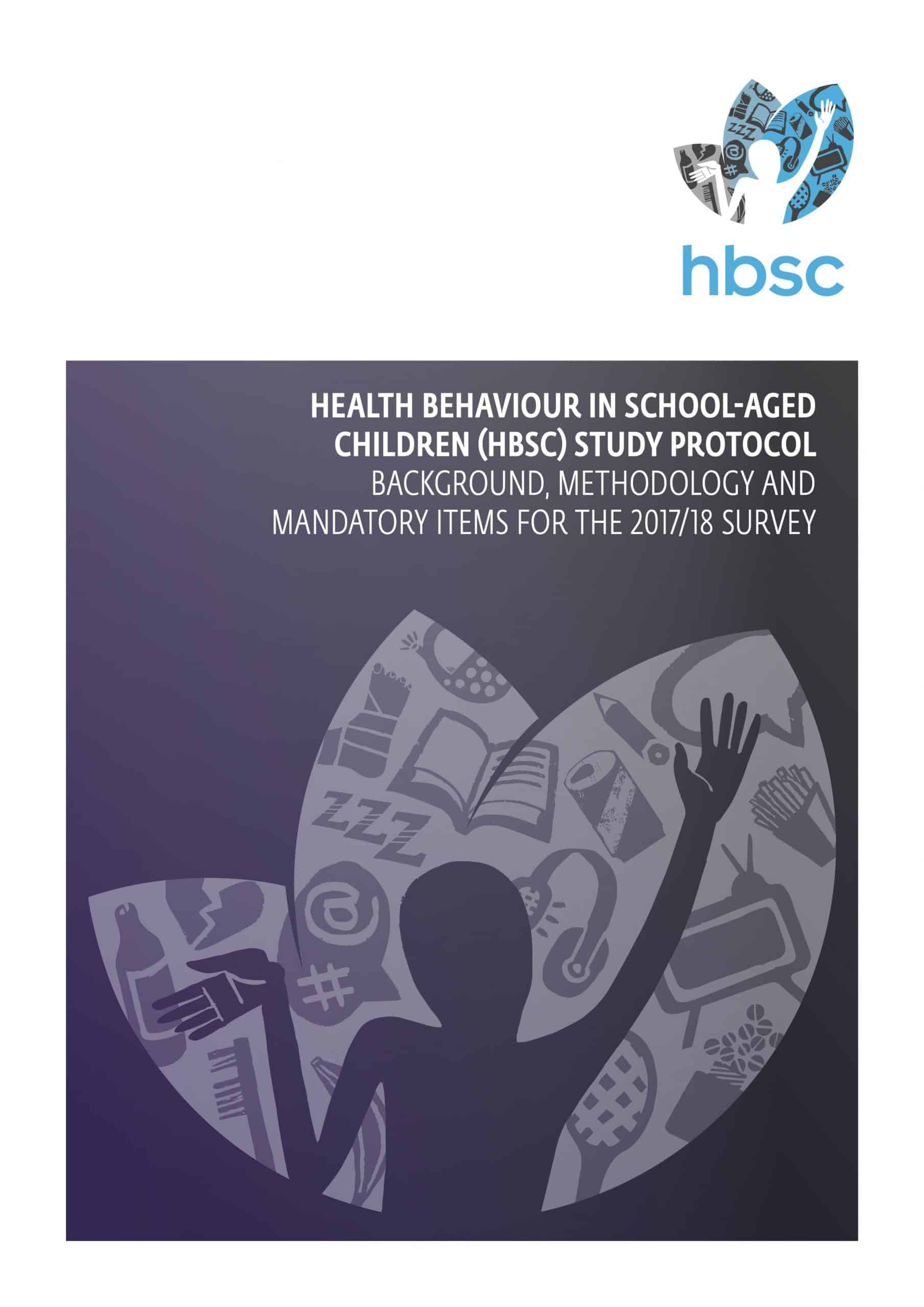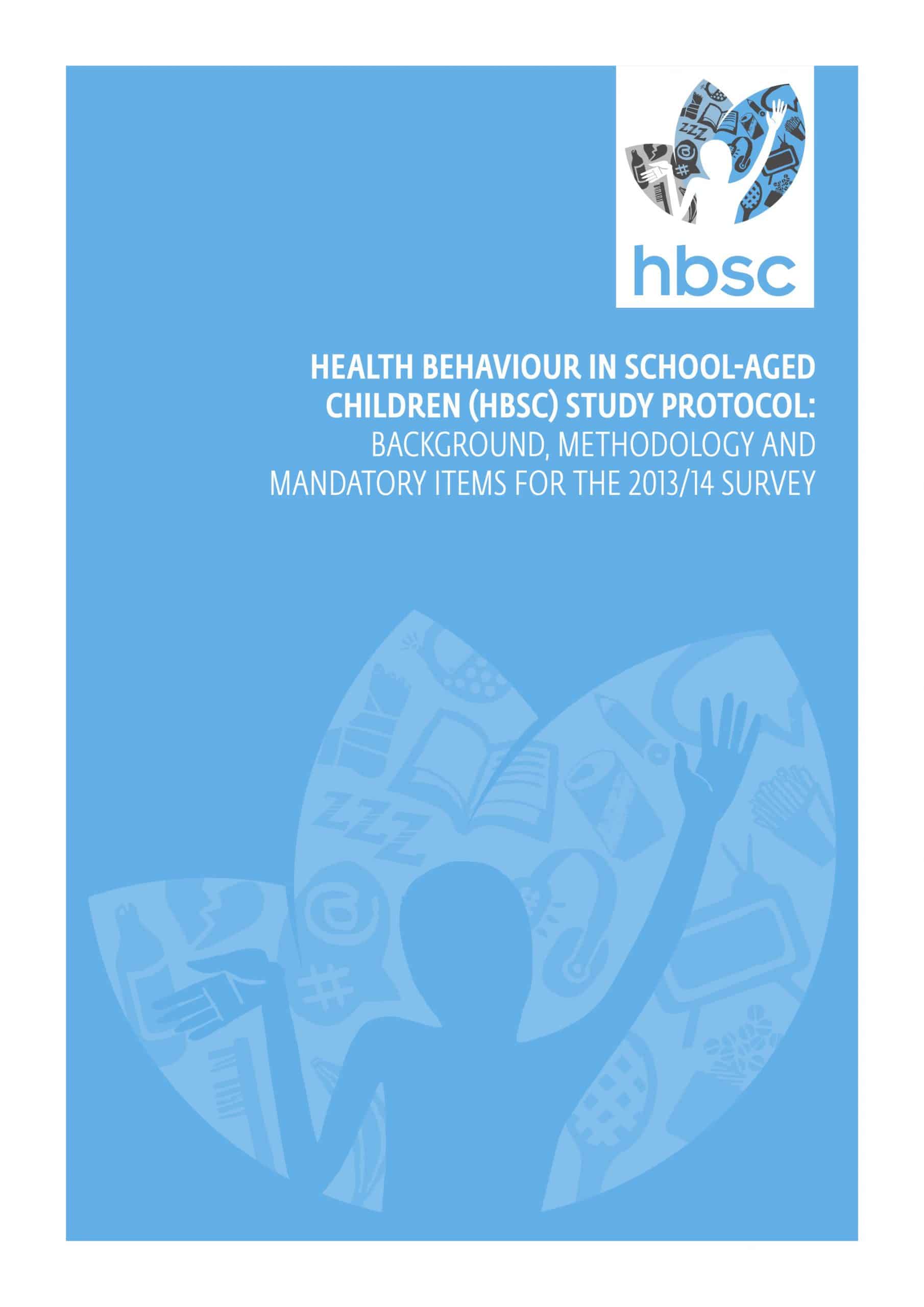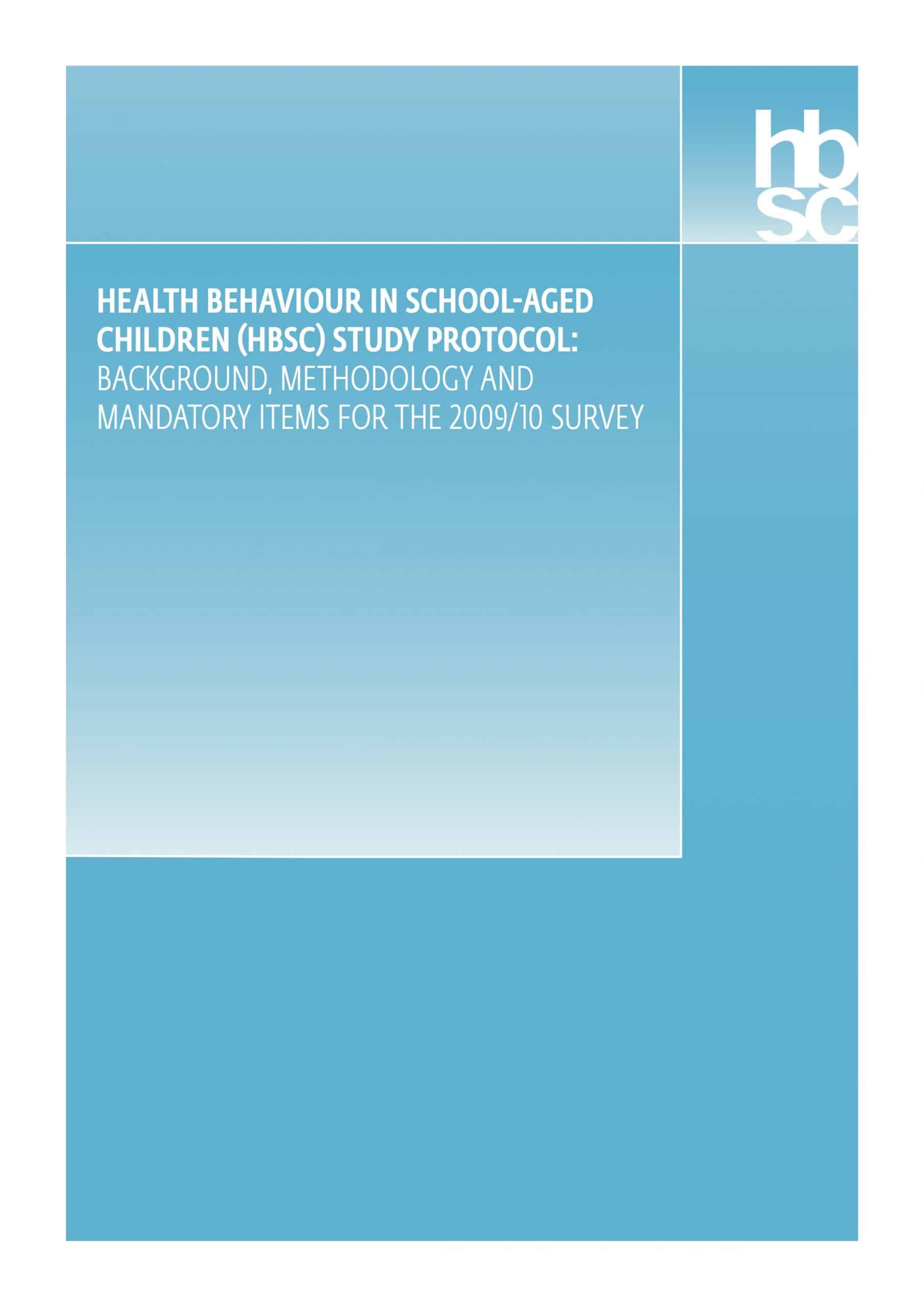Survey protocols
For each HBSC survey, a research protocol is produced by members of the network. Each protocol includes complete information on HBSC’s scientific rationale and methodology, mandatory and optional survey questions of the HBSC survey, as well as technical appendices on data collection and management.
Public versions of HBSC research protocols have been made available for non-members since the 2009/10 survey. These abridged protocols are not intended to provide a comprehensive guide on how to conduct the HBSC survey outside of HBSC member countries. Instead, we hope they provide a window into the study – our history, scientific approach, methodology, and findings. In the abridged, public versions of our research protocols, HBSC optional packages are listed by title, but full item descriptions are not given, as they include developing HBSC work.
By making our research protocols available to wider stakeholders, the HBSC international research network aims to raise awareness of our work, share knowledge, increase transparency and promote the HBSC study internationally.
2021/22 research protocol
Requires registration to allow us to track use.
HBSC Family Affluence Scale Coding Guidance
The Family Affluence Scale (FAS) is an established measure used to estimate family wealth in the absence of direct income or wealth data. The FAS III version, the latest iteration, encompasses six items to reflect contemporary socio-economic conditions. This guidance document provides detailed instructions for coding and scoring the FAS.
2017/18 research protocol
2013/14 research protocol
Currie C, Inchley J, Molcho M, Lenzi M, Veselska Z & Wild F (eds.) (2014). Health Behaviour in School-aged Children (HBSC) Study Protocol: Background, Methodology and Mandatory items for the 2013/14 Survey. St Andrews: CAHRU.
2009/10 research protocol
Currie C, Griebler R, Inchley J, Theunissen A, Molcho M, Samdal O, Dür W & (eds.) (2010). Health Behaviour in School-aged Children (HBSC) Study Protocol: Background, Methodology and Mandatory Items for the 2009/10 Survey. Edinburgh: CAHRU & Vienna: LBIHPR.
